Choose To Reuse
by Rianna Koppel, Co-op Sustainability Coordinator
At the Ashland Food Co-op, we are committed to becoming Zero Waste by 2030. Along the way, we’ve learned a lot about packaging and single-use at our store. Our owners care deeply about reducing plastic waste, and we do too!
Reusable Bags
At the co-op, we have many different bag options… So what's the best choice?
We offer plastic bags, paper bags, and reusable bags. There is a 2¢ charge for new plastic bags, and a 10¢ charge for new paper bags. These charges help to subsidize the costs of our reusable bags.
We offer two reusable options, both costing only 50¢! Our plastic bag is made from reused and recycled plastic. Our fabric bag is made from cotton by the company Royal Jute. 100% of the proceeds from Royal Jute go directly to Kiva, a nonprofit that finances micro-lending programs for women across the world. Every time you purchase or use one of these bags, it makes a real impact for the planet and people.
Since we introduced reusable bags in fall of 2018, we have sold over 16,000 of them to our awesome and very sustainable members. This has worked to reduce plastic too - we have ordered 100,000 less plastic produce bags than in 2018.
What About Compostable Bags?
Sometimes people ask, why don’t you use compostable bags like other grocery stores? This is a great question, with a complex answer.
There are many commercially compostable items out there - including our very own Co-op take-out containers. If you start reading the tiny font on various packaging, you will see that there are many packaged items that are compostable in industrial or commercial facilities.
Here’s the problem: we don’t have any industrial composting facilities in the state of Oregon that will take these kinds of materials.
In fact, every composting facility in Oregon came together to issue a statement on their refusal. They called it, “A Message From Composters Serving Oregon: Why We Don’t Want Compostable Packaging and Serviceware”. The company listed out nine reasons why it’s not a good idea, including the facts that these materials do not always break down, they introduce contaminants, and they cannot sell this compost to organic farmers.
You can read more about this statement in this NCRA article from March 2019.
What about straws made from avocado pits?
So what about bio-based products made from renewable materials like bamboo, corn, or avocado pits? No matter the material, it’s still a single-use straw. There is a financial impact as well - straws made from avocado pits costs a whopping 600% more than a single-use paper straw. I suggest trying a reusable stainless steel straw instead!
There’s another hidden cost to plastics made from materials like corn… the impact on the environment.
According to the Oregon Department of Environmental Quality’s study on Popular Packaging Attributes, bio-based disposables can actually have a worse environmental impact! They concluded that biobased packaging materials have significant environmental trade-offs when compared to non-bio based counterparts. Plus, they take away from food production.
What Can I Do?
Choose to reuse first. Make sure to throw your reusable produce bags in with your tote bags, and don’t forget your coffee cup! Eat in at the Co-op on a durable plate or bowl - which will save you 15¢.
There are different ways to address our plastic problems, and each one of them can start with us making the choice to reuse. We started our 15¢ discount for bringing your own coffee cup in 2013 - since then, customers have used this discount over 113,000 times! That’s an amazing diversion from the landfill that makes us proud to be committed towards zero-waste at the Co-op.
If you would like to learn more about our sustainability initiatives, contact Rianna at sustainability@ashlandfood.coop.
More Co-op News
Nourish Your Family and Fight Hunger
The holiday season is upon us. Amidst the shopping frenzies, family gatherings, and parties it can be hard to remember this is also a season of giving. That’s why we want to make it easy for you to give back. So easy that it’s as simple as doing your everyday grocery shopping. You can nourish your own family and help fight hunger in the Rogue Valley.
For the month of November, we are once again teaming up with Smart Chicken® for the Smart Chicken® Smart Giving program.
Here’s how it works.
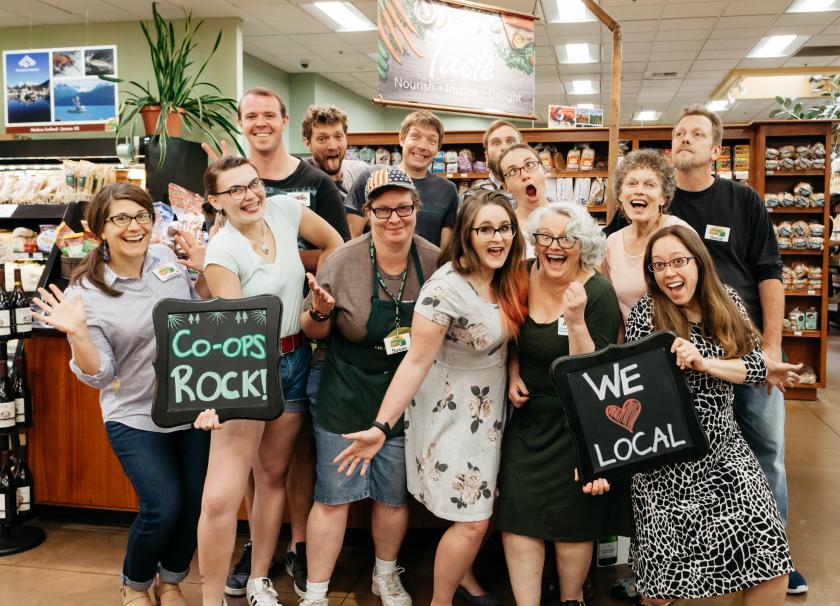
5 Reasons to Love Co-ops
By Laura Pfister, Media Coordinator
October is National Co-op Month, so what’s the big deal? Being a co-op is special. Yes, we know we are biased, but being a cooperative enterprise means we do business differently. We don’t have a single owner living on their private island drinking margaritas all day without a care in the world. We are owned and governed by you, our 10,000 members. We share the burden in hard times and share the benefits in the good times. We put people, the planet and our principles before profit.
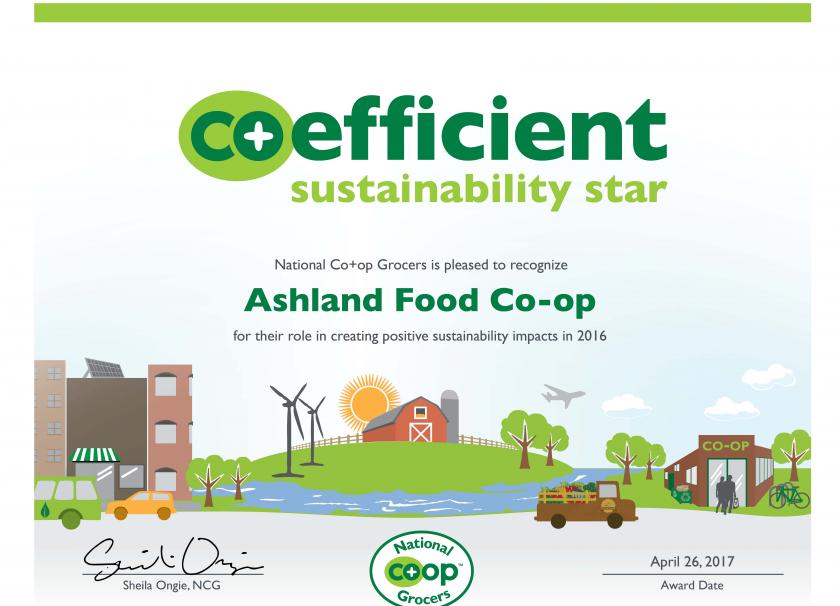
From the General Manager's Desk
By Emile Armarotico
This spring, National Co-op Grocers recognized Ashland Food Co-op as a Co+efficient Sustainability Star for our excellent sustainability efforts.
Our Sustainability Vision aims at being carbon neutral by 2030. We’ve taken a great stride toward this by installing a 39 kilowatt solar electric system on our rooftop with the capacity to generate approximately 7% of our electricity usage. The cost was partially offset by a $27,000 REAP (Rural Energy for America Program) Grant.
Local Starts at the Co-op
When we say local, we mean local. We source our local goods from within 200 miles of the store. By purchasing goods from local producers, we aim to create and maintain a healthy local economy and support family farms. What could be better than helping your community by buying local goods?
With all the local products that we offer, it’s hard to pick a favorite. But that’s exactly what we asked our staff to do. Here are some of their go-to local eats.
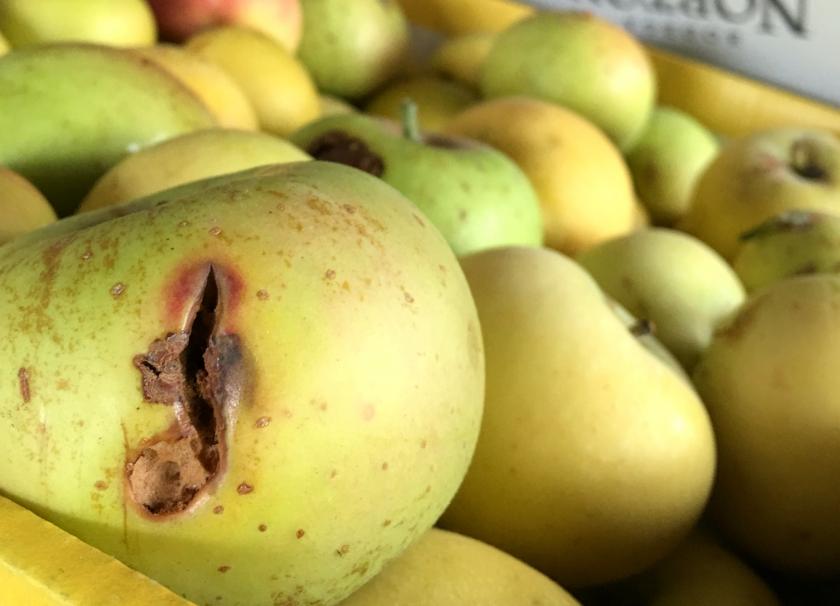
Your Fruit. Your Cider.
How often can you browse the shelf at your neighborhood grocery store, see a bottle of hand crafted, local cider and say, “Hey, I help make that!” Well, at the Co-op you can.
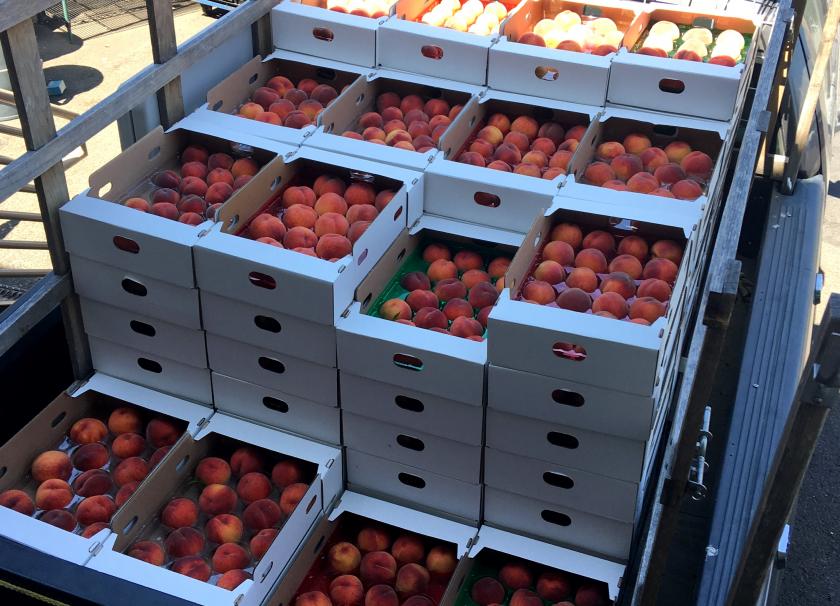
Millions of Peaches, Peaches for Me
By Laura Pfister, Media Coordinator
Many of us wait all year for this moment. We spend the winter months dreaming of a certain fuzzy stone fruit, its sweet juices dripping from our face and the buttery golden pie crust those yellow-orange slices will inhabit.
Good news! The wait is over. That local, sweet orb of sunshine has finally arrived. That’s right. Rolling Hills peaches are here!

2017 Board Election Results
We're Sustainability Stars!
Deep in our hearts we've always known we were sustainability stars, but now we have an award to prove it.
We recently received a Co+efficient Sustainability Star award from National Co-op Grocers (NCG) recognizing our positive environmental and community impacts.
Co+efficient, NCG’s sustainability program, measures social, environmental and local economic impacts from participating food co-ops across the country.
Give Where You Live
It’s the most wonderful time of year! Yes, we know that phrase is generally reserved for the holiday season. But for us, this truly is the most wonderful time of the year. It’s OUR season of giving.
Dine In and Bike Your Way to Savings
Did you know that approximately half of our landfill waste stream is composed of Deli trash? A significant part of that is “to-go” containers, which are sometimes used for dining in and don’t end up “going” very far at all.
Sustainability matters in everyday actions and we want you, our customers, to help us reduce unnecessary waste and make the most ecologically sound choices possible.

Participate in YOUR Co-op!
Spring Picks
The sun is (mostly) out and the weather is finally getting warmer. That must mean summer is right around the corner, right? We sure hope so. We’re ready to grill, soak up some sun and enjoy the many fruits and vegetables that are in season. Our Floral Coordinator, Rachel Chastain, shares some of her favorites.

Be the Sustainable Change
By Laura Pfister, Media Coordinator
Sustainability is not a new concept at the Co-op. It has always been part of our DNA. We’ve been using sustainable business practices before it was the “cool”, “responsible” thing to do. In fact, the Co-op was founded 45 years ago largely on the principles of sustainable, local organic food production as an alternative to modern industrial agriculture.
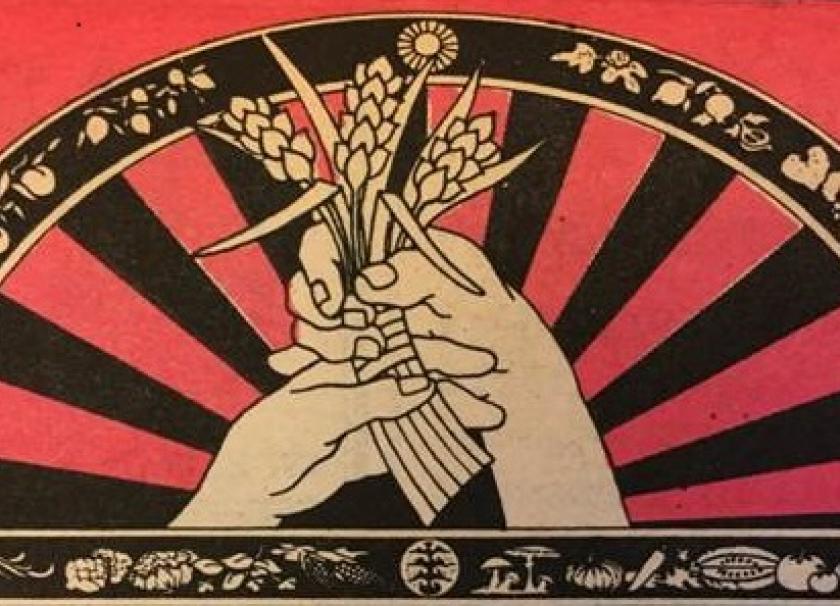
A New Look
By Laura Pfister, Media Coordinator
For 45 years we’ve been loving local and fostering community. Throughout our almost half a century history, our identity and logo has gone through many iterations.
Some of you might remember the logo above from our newsletter in the early 1980s.
As we’ve done multiple times throughout our history, it’s time to refresh our brand and launch a beautiful, new logo to take us into the next decade.
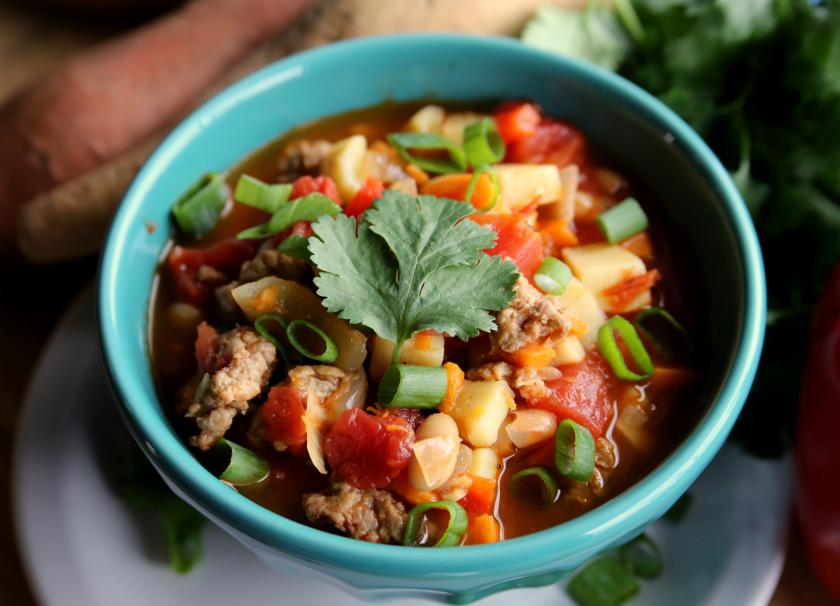
Turkey and Sweet Potato Chili
Turkey and Sweet Potato Chili is one of my favorite Co+op Basics recipes. It is full of flavor, color and shatters the myth that a healthy meal has to cost a fortune and take all day to prepare. This recipe is also a clever way to use sweet potatoes, which are not only tasty but high in fiber and vitamin A.
